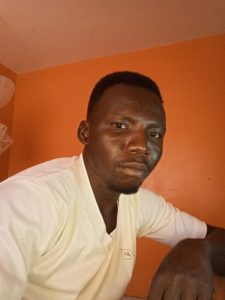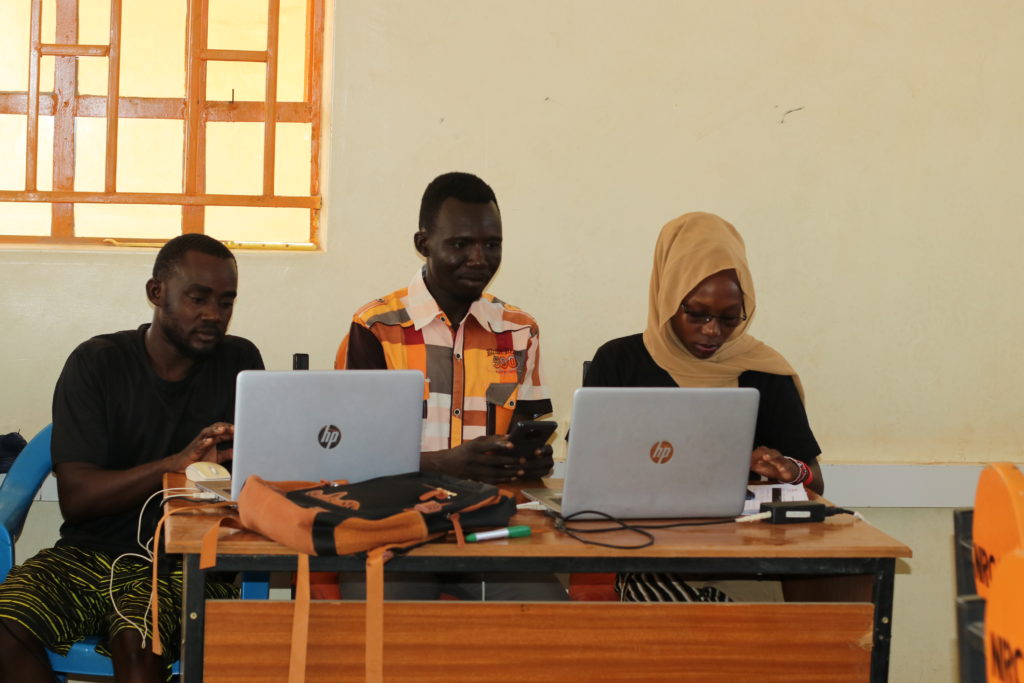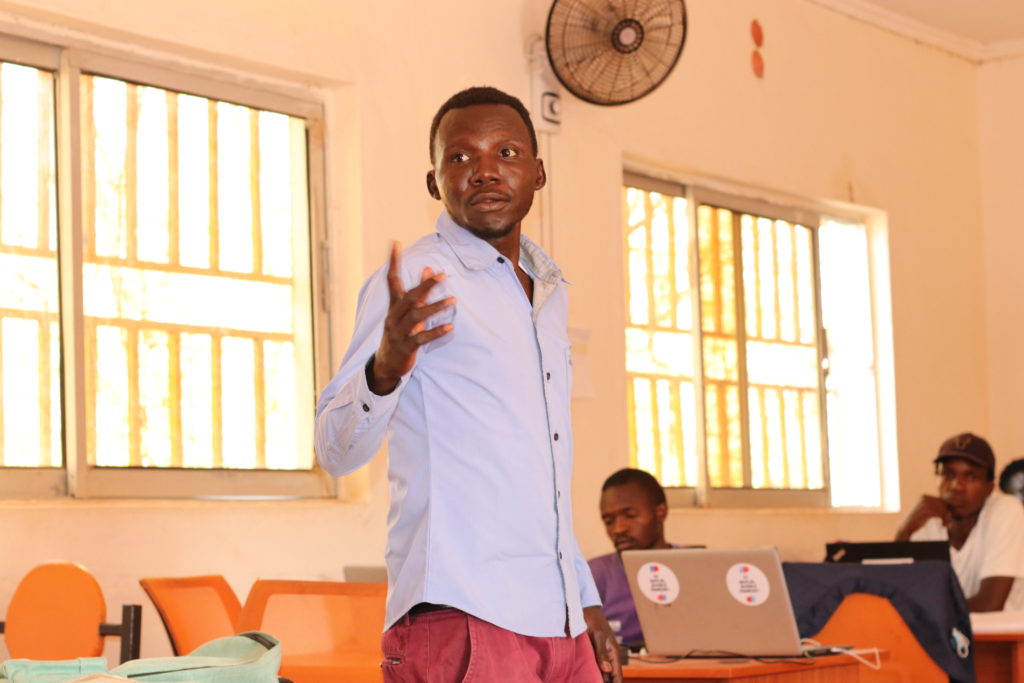To elevate unheard, unseen displaced voices to the forefront is one of Techfugees` goals. Today, continuing to celebrate Refugee Week we share the story of our community member from Techfugees Kenya Chapter – Abri Yusif Samana. Abri successfully finished Techfugees` Digital Sparks program (*fully sponsored scholarship program in partnership with Google for startups to receive remote education on Design, IT support, Project Management, Python, Data Analytics).
“My name is Abri Yusif Samana, born on 1st January 1994 and I am currently living in Kakuma refugee camp, Kenya. I am a Sudanese by nationality and I came from South Kordofan, a region within Sudan, popularly known as Nuba mountains. I left home (Sudan) in November 2004 and arrived in Kenya in the Month of January 2005. Whatever happened that led to my migration to Kenya, and what happened on the way, is a story not to be talked about. Upon arrival, I was not registered immediately by UNHCR as a refugee. However, I was registered as a refugee in August 2008.
It is in Kakuma refugee camp where I began my perfect studies. I began my studies in class 3 since I attended classes 1 & 2 in Sudan. I was able to successfully complete the Kenyan Certificate of primary education (KCPE) and went to secondary school within the camp. Upon completing my secondary education, is when I started thinking widely. High school was the highest level of education that I was aiming at. Chances of going beyond high school were minimal, almost none. This is because there were not many scholarships slots available and those that were there were very hard to get. In 2014, I joined Regis University where I did a certificate in primary teachers’ education. This gave me hope of becoming a teacher though my dream was to be a doctor.

I did not have any hope for further studies until the DAFI scholarship came. DAFI is a scholarship funded by the government of Germany and implemented by Windle International Kenya (WIK). I began thinking about what course to take if I am able to secure a scholarship. My thoughts landed me in the technology field. I chose technology because the area I came from in Sudan is far behind in technology. There was no network, WI-FI, no phones, no any form of software, just to mention a few. Since 2005, I have spoken with my parents twice and this happened in 2009 and 2019. The gap is wide and this tells you how poor we are regarding technology. I thought taking a tech course will help me solve at least one of the problems we have back home and if I can’t solve it myself, I can at least empower someone to solve it. In 2016, I secured a DAFI scholarship and joined Jomo Kenyatta University of Agriculture and Technology where I did Information Technology (IT) and graduated in November 2021. After my studies, I returned to Kakuma camp and here I had to do other professional courses to strengthen my degree. The courses I took included accounting, E-commerce, entrepreneurship, Data structures and algorithms, general medicine and lab services, and IT support.
When I got a chance for the Digital Spark, I took it as an opportunity for me to advance my IT skills by improving software and networking skills, and stay within the latest field of technology. However, In the process of doing IT support, I learn other unique skills in the process. I was able to open a computer, and assemble it back to its original state, something I never did when I was on campus. I used the knowledge and skills I got from the program and I was able to repair 3 computers that were not functioning. I became an IT technician though my initial role was as a web development facilitator. Not only did I offer IT support services to the organization, but I also did offer support to many young refugees who come with their own devices for repairs. I can now repair phones, laptops, and desktops, and this was as extra skill that I got during the digital spark program. Although I am currently playing a different role in the organization where I work, I am able to offer support to the IT department in case there are problems with the devices, thanks to the digital spark program.

Using the knowledge and skills I got during my studies, I worked on three major projects. I developed a learning application for the children. It was a web-based application, incorporated with sound, names and images to help a child interact with the system and have a better view of the real-world objects. I also developed a voting system for the DAFI students’ organization that they used to elect their leaders during the corona various pandemic. Lastly, I participated in developing bulk SMS with Softsearch limited. The platform helps companies send bulk messages to their clients or employees. However, in the process of coming with these applications, I faced internet connectivity problems, especially here in the camp. What I used to do is to make use of the organization’s WI-FI where I work. When I am at home, I buy data bundles and use it for research. I always do my research at night around 1 am – 3 am. That is when the Safaricom network is stable in the camp. I also used to reach out to my former classmates to help me with ideas on how to solve something. I use YouTube tutorials well because I learn better by seeing what someone is doing while talking.
The Kids application was of great use and many children were interested in it. However, the project didn’t have financial support to maintain it. More on the same, the schools in the camp don’t have enough computers or tablets where we can install this app. The voting system was only used on the day of the election and we disabled it after the election. It is one of the projects that helped students a lot. SMS project is still up and running but it is with the company and serves many companies and their employees and clients.
To my fellow refugees, technology is what we can’t avoid. Everything being done nowadays is technology. It has disrupted every part of our lives in positive and negative ways. Refugees need to accept this disruption and impress what comes with it. Technology can only be harmful if it is misused or it is used for a purpose it was not intended for.
Refugees need to think widely and know that technology drives the world’s economy. Businesses flourish because of the advancement in the tech industry. All jobs require at least a basic IT. Let refugees learn and continue learning even if it is hard or not. They need to wake up and move forward together with the world.”
